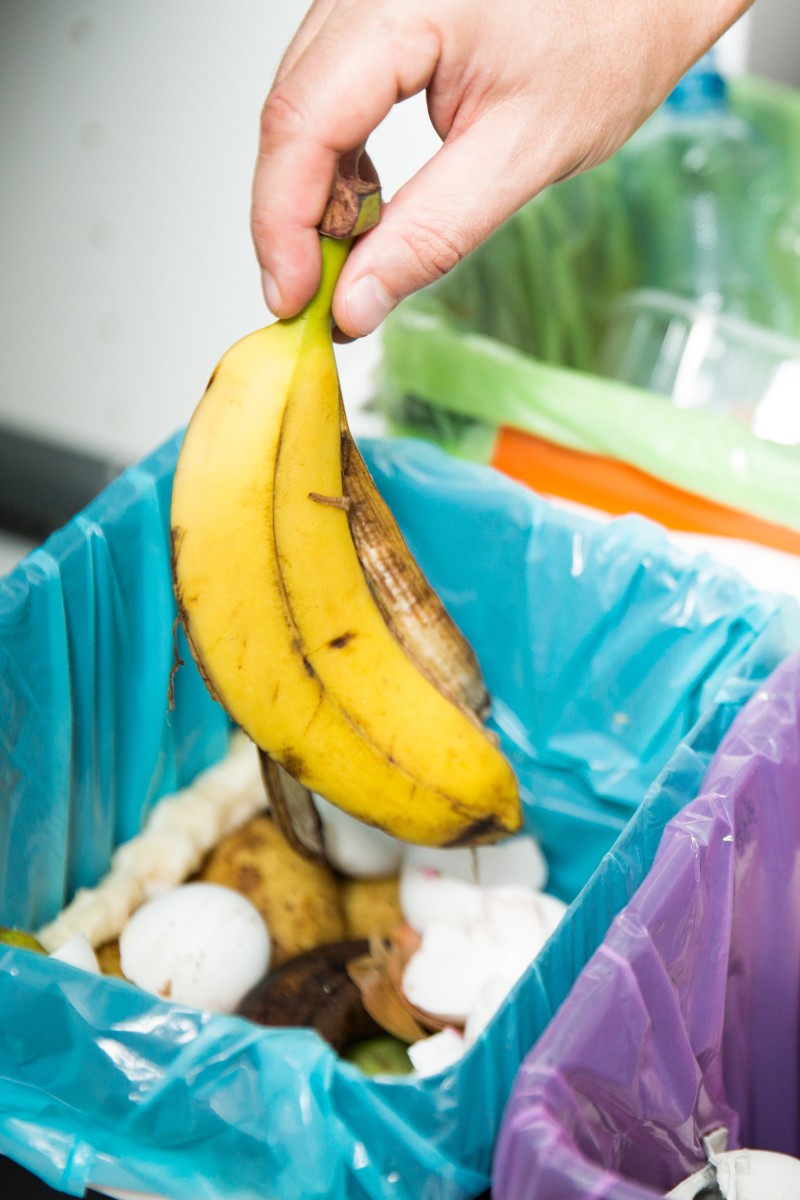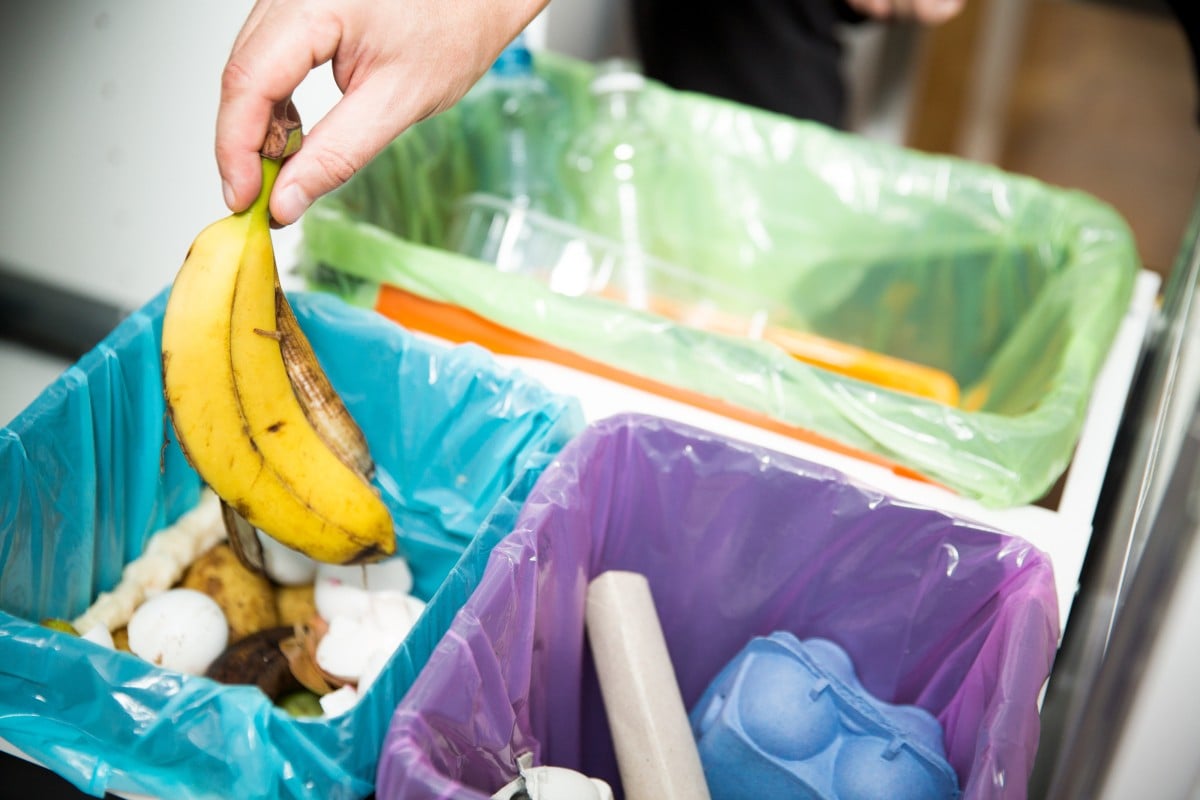
Your Voice: Food waste management is essential; the growing prowess of AI (long letters)
- One reader shares how food waste recycling is a pressing issue in Hong Kong that needs to be addressed urgently
- Another reader explains how artificial intelligence is making an impact across nearly every facet of our lives, including education
 One reader says that Hong Kong residents have been slow to embrace food waste recycling due to the absence of incentives and impractical guidelines. Photo: Shutterstock
One reader says that Hong Kong residents have been slow to embrace food waste recycling due to the absence of incentives and impractical guidelines. Photo: Shutterstock Have something to say? Send us a letter using this Google form.
Food waste management is essential
Athena Wu Chi-kiu, Pope Paul VI College
I am writing to address the pressing issue of food waste recycling in Hong Kong. It is evident that residents and restaurant owners have been slow to embrace food waste recycling due to the absence of incentives and impractical guidelines. This situation calls for urgent attention and action from both the government and the community.
Many individuals are uncertain about what can and cannot be recycled, leading to confusion and a reluctance to separate their waste appropriately. It is crucial for authorities to provide comprehensive and user-friendly guidelines that outline the types of food waste suitable for recycling.
By doing so, they can empower residents and restaurant owners with the knowledge needed to participate in recycling efforts.
While the government has made commendable efforts to implement food waste collection trials in public housing estates, the lack of widespread adoption indicates the need for additional incentives. Independent and family-run businesses, in particular, face practical difficulties in recycling food waste due to space limitations and resource constraints.
Implementing incentives such as tax breaks or financial assistance programmes can provide the necessary support to these establishments, encouraging them to invest in food waste separation and recycling infrastructure.
Hong Kong’s food waste recycling schemes need more resources, guidance
Education and awareness campaigns are also vital in promoting behaviour change and fostering a culture of recycling. By raising public awareness about the environmental consequences of disposing of biodegradable food waste in landfills, individuals can better understand the importance of their participation in recycling initiatives.
Public outreach programmes, workshops and community engagement events can play a pivotal role in disseminating information, addressing misconceptions, and encouraging residents to embrace sustainable waste management.
Moreover, it is essential to expand the infrastructure for food waste collection and recycling. The current efforts by the Environmental Protection Department to install food waste bins in public rental housing estates are commendable.
However, it is crucial to extend these initiatives to cover a broader range of districts and households. Collaborative partnerships with private waste management companies can also facilitate the establishment of more collection points throughout the city, making it convenient for residents and businesses to participate in food waste recycling.
The challenges faced by Hong Kong in food waste recycling require immediate attention and comprehensive solutions. Clear guidelines, coupled with incentives and education, can empower residents and restaurant owners to actively participate in recycling efforts. Expansion of infrastructure and collaborative partnerships will also play a vital role in creating a sustainable waste management system. By addressing these issues collectively, Hong Kong can take significant strides towards reducing food waste and building a greener, more environmentally conscious future.
The growing prowess of AI
Jonathan Su, German Swiss International School
Artificial intelligence (AI) has been all the rage ever since ChatGPT burst onto the scene about a year ago. There is little doubt that AI is now making its prowess felt across nearly every facet of our lives, including education.
The cost-effectiveness of AI-powered learning for students can’t be denied. One student on Reddit explained the financial burden of seeking help from traditional tutors: “The tutors that could remedy this deficiency would cost me HK$80 a lecture, 1-2 lectures a week, for the entire semester.”
Ice cream chain Baskin-Robbins launches AI lab to develop ‘innovative’ varieties
Desperate for affordable and personalised support, the student turned to AI-powered platforms. “A HK$20 ChatGPT Plus subscription that enabled me to use GPT-4 and a little tweak of prompts that explain everything to me in a personalised manner with note-taking have changed my life. I scored 4 out of 30 in my organic chemistry midterm a year ago. Now I scored 23 out of 30.”
This success story demonstrates AI’s evident potential as an affordable and effective alternative to traditional teaching methods. AI can provide personalised explanations, instant assistance and a flexible learning environment that a teacher managing up to 30 students cannot realistically emulate.
However, a fundamental concern in implementing AI universally in classrooms is whether students would accept an AI teacher and establish the necessary respect, authority and connection. Students may subconsciously view AI as a different entity, even if it can simulate human emotions flawlessly. Additionally, the absence of human qualities such as frustration or anger in AI might lead students to question the necessity of completing tasks without the palpable disappointment they would experience from a human.
Another key concern with AI replacing human teachers in the classroom is the role that teachers play in shaping the minds of their students. Inspirational, funny and charismatic teachers have the power to ignite students’ love for a subject and become their role models.
Having said the pros and cons, a possible solution would be to integrate AI into the classroom on an equal footing with human teachers rather than a complete replacement.
Khan Academy is an example of an educational institute that is already embracing an AI teaching style.
Khanmigo, created by Khan Academy, is a chatbot powered by GPT-4 that can be used as an AI tutor. It can monitor student progress, flag struggles early, and provide personalised learning recommendations outside of school, all working in tandem with human teachers who already offer empathy, inspiration, and real-world connections in school.
This shows that with the right approach, AI and human teachers could form a powerful partnership to elevate education to a new level.
